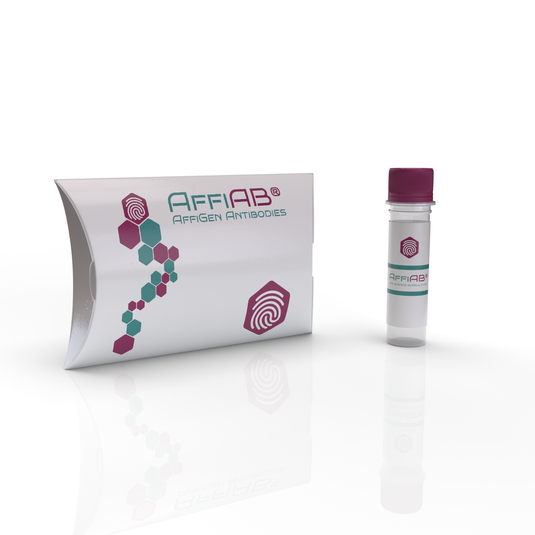AffiAB® Goat Anti-Rab11b Polyclonal IgG Antibody is a research-grade antibody designed specifically for immunohistochemistry and western blot experiments. Its binding affinity and specificity ensure reliable performance. With a high affinity, this antibody can accurately detect intracellular and extracellular Rab11b proteins.
The AffiAB® Goat Anti-Rab11b Polyclonal IgG Antibody is an antibody specifically designed to recognize and bind to the Rab11b protein. Rab11b is a member of the Rab family of small GTPases, which play crucial roles in regulating intracellular vesicle trafficking and membrane recycling.
This polyclonal antibody is produced by immunizing goats with purified Rab11b protein or a specific peptide sequence derived from Rab11b. The resulting antibodies are then purified from goat serum to ensure high specificity and quality.
The AffiAB® Goat Anti-Rab11b Polyclonal IgG Antibody is widely used in research applications to study the expression, localization, and function of Rab11b in various cellular processes. By detecting and visualizing Rab11b, researchers can investigate its involvement in vesicle transport, recycling endosomes, and plasma membrane dynamics.
Common techniques used with this antibody include immunoblotting, immunofluorescence, immunohistochemistry, and immunoprecipitation to analyze Rab11b protein expression and explore its functional roles. The antibody's specificity ensures reliable and accurate detection of Rab11b, enabling researchers to investigate its interactions with other cellular components and its impact on cellular physiology.
It is important to note that the AffiAB® Goat Anti-Rab11b Polyclonal IgG Antibody specifically targets Rab11b and may not cross-react with other Rab proteins or related molecules. Researchers should conduct validation experiments and include appropriate controls to ensure the antibody's performance and specificity in their specific experimental conditions.
In summary, the AffiAB® Goat Anti-Rab11b Polyclonal IgG Antibody is a valuable tool for studying the expression, localization, and function of the Rab11b protein. By targeting Rab11b, researchers can gain insights into its role in intracellular vesicle trafficking and membrane recycling, contributing to our understanding of cellular processes and disease mechanisms.

